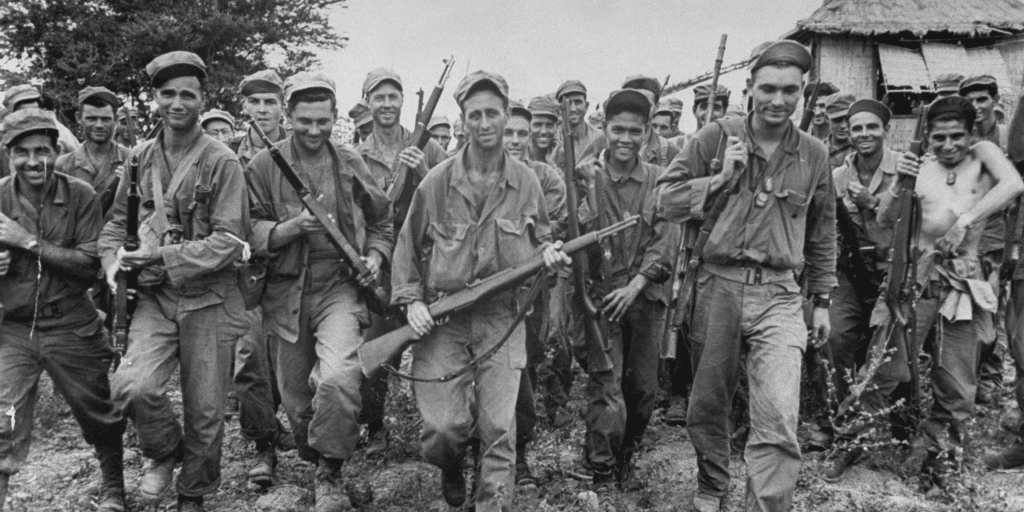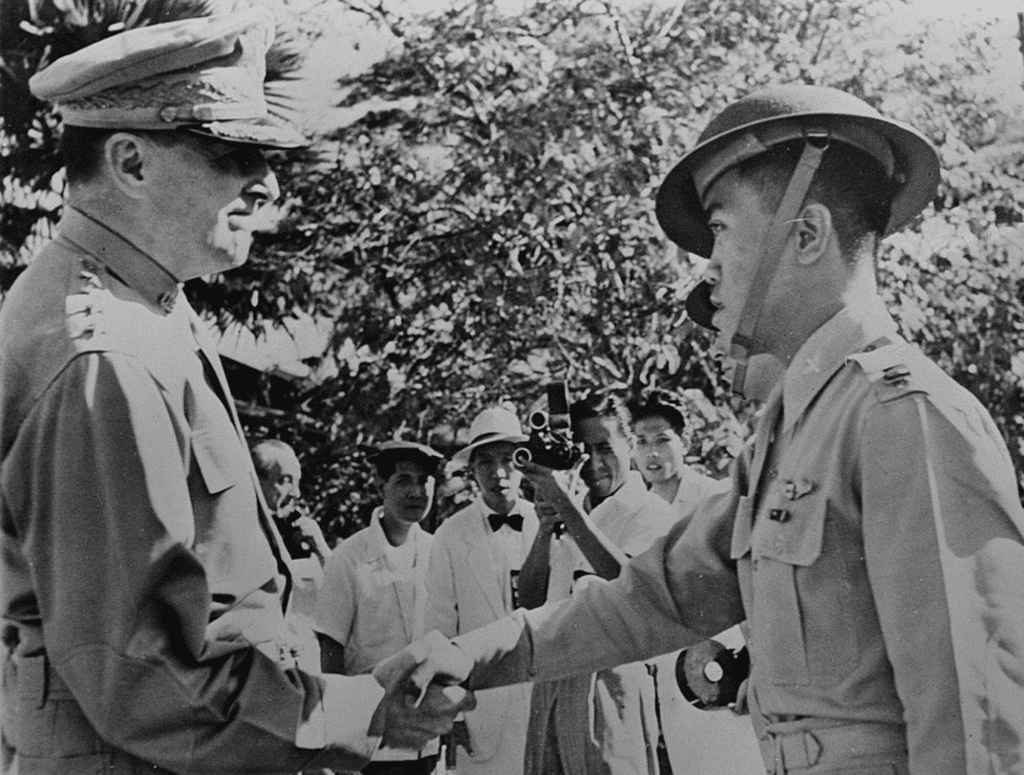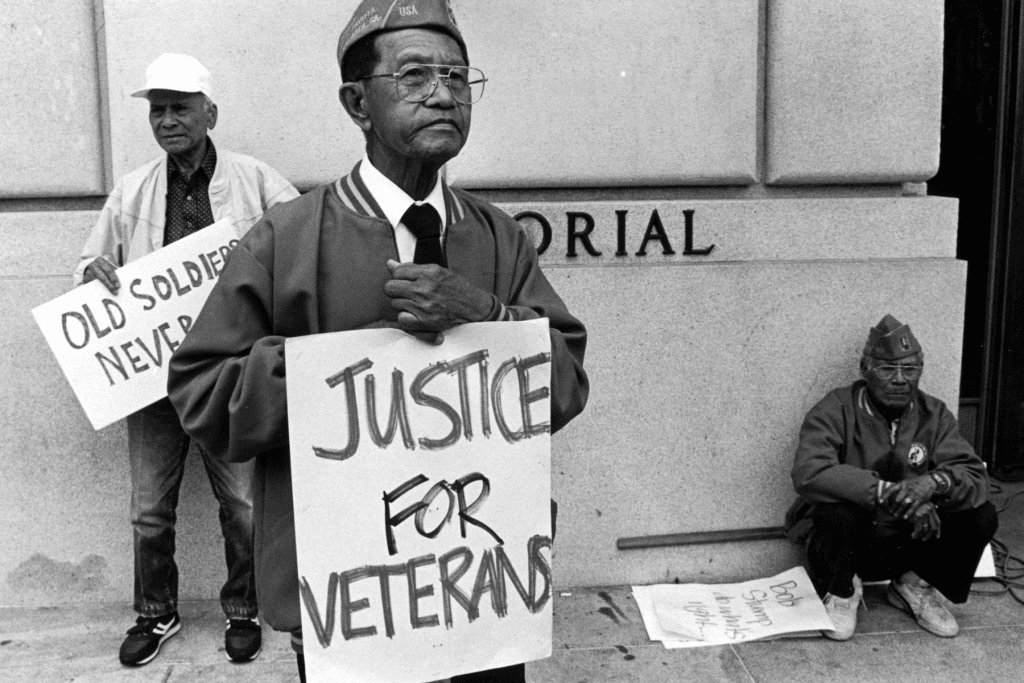During the darkest days of World War II, more than 250,000 Filipino soldiers answered the call to fight under the American flag. They were part of the United States Armed Forces in the Far East, recruited to defend the Philippines and support the Allied war effort in the Pacific. These men fought bravely in key battles, endured the horrific Bataan Death March, and served in guerrilla units behind enemy lines. Their service was critical in resisting Japanese occupation and securing victory for the Allies.
At the time, the U.S. government made them a promise they would be treated as American veterans. That meant not only recognition but also benefits and the opportunity for U.S. citizenship. For many, it was a powerful symbol of partnership and respect between the Philippines and the United States. But the story did not end the way it should have.

The 1946 Rescission Act: A Broken Pledge
In the aftermath of the war, as America shifted its attention to rebuilding and returning to normal life, Congress passed the Rescission Act of 1946. Hidden within the fine print of this legislation was a shocking betrayal it stripped Filipino veterans of the benefits they had been promised. With the stroke of a pen, their service was legally acknowledged but financially disregarded.

Only a fraction of the soldiers about four thousand had been granted U.S. citizenship before the act was signed. The rest were left behind, denied pensions, health care, and other support that their American counterparts received. Many were left to rebuild their lives in post-war Philippines, struggling with injuries, trauma, and poverty.
Video:
Filipinos Armed To Fight Japanese (1945)
Years of Advocacy and Partial Recognition
Over the decades, Filipino veterans and their advocates tirelessly fought for justice. They marched, petitioned, and lobbied members of Congress. Some moved to the U.S. and continued their efforts stateside. Their struggle gained momentum in the 1990s, as media coverage and public awareness helped shine a light on the injustice.
In 2009, a small step was taken when President Obama signed legislation authorizing a one-time lump sum payment to eligible veterans or their surviving spouses. While it was a symbolic gesture of appreciation, many saw it as far from adequate compensation for years of sacrifice and delayed recognition.

A Story That Still Deserves Justice
Many of the veterans who fought in World War II have passed away, taking their hopes for justice with them. Those still living today are elderly, with limited time remaining. Yet their legacy continues through their families, their communities, and those who refuse to let their stories be forgotten.
Video:
Japan vs US: Bataan Death March in the Philippines WW2 #ww2 #philippines
Some Filipino American organizations continue to push for full military honors, extended healthcare, and retroactive citizenship for surviving family members. They argue that gratitude should not expire, and a promise made should be a promise kept regardless of time passed.
The Bigger Picture: What This Teaches Us
The story of the Filipino World War II veterans is not just about missed benefits or bureaucratic red tape. It is about what happens when a nation fails to honor its commitments to those who served it faithfully. These men fought under a foreign flag with the belief that they were part of something greater. They stood shoulder to shoulder with American soldiers, only to be sidelined when the fighting stopped.
This chapter in history forces us to ask tough questions about fairness, responsibility, and historical accountability. How do we honor the service of those who were once allies? What does justice look like when it is delayed for decades?

Conclusion: Remembering the Forgotten Heroes
The courage and sacrifice of Filipino World War II veterans deserve more than a footnote in history books. They deserve to be remembered with dignity and honored with action. While progress has been made, the full weight of justice has yet to be delivered. For the thousands who served with unwavering loyalty, and for the generations that followed, we owe them more than just recognition we owe them what was promised.
As we look back on the victories of the past, let us not forget those who made them possible. Their story is not just part of Filipino history or American history it is a shared legacy of bravery, betrayal, and the enduring fight for justice.


